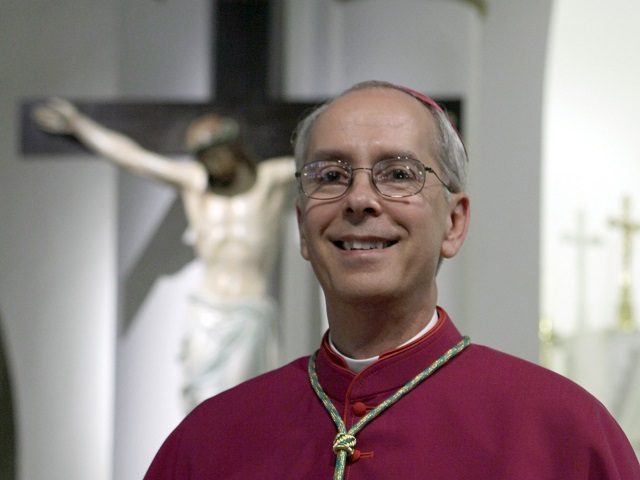Catholic Bishop Mark Seitz of El Paso, Texas, said that after the election of Donald Trump the U.S. bishops “were feeling kind of helpless” and had to prepare themselves for the “implications” of a Trump victory.
The bishops had prepared for a Hillary Clinton victory, Seitz told the Catholic online magazine Crux, “but when President Trump was elected, we had to re-gear and it presented to us a whole different list of threats… we had to retool ourselves.”
“There was a lot of fear and it began from the day of the election,” he said.
“In a certain sense we felt we weren’t really prepared for this and what would be the implications,” he said.
On the one-year anniversary of the Trump victory, Crux looked back over reactions of the Catholic hierarchy in the United States to the elections as well as the first weeks and months of the Trump administration.
In February, San Diego bishop Robert McElroy attacked the President, telling his audience that they must disrupt Trump’s efforts to fulfill his campaign promises.
In an address to the U.S. regional meeting of the World Meeting of Popular Movements, Bishop McElroy said that “President Trump was the candidate of disruption. He was the disrupter.”
“Well, now we must all become disrupters,” he said.
As Breitbart News reported, last summer the Catholic Archbishop of Newark slammed President Trump in an interview with a French Catholic newspaper, saying he appeals to the “dark side of Americans.”
In his interview with La Croix, Cardinal Joseph Tobin said that the current climate of insecurity “has caused an exaggerated patriotism in the United States,” suggesting that Trump plays on Americans’ fears and desires to see America “great again.”
“I think President Trump appeals to the dark side of Americans,” Tobin said. “He speaks to fears, to insecurities.”
Bishop Seitz echoed some of these sentiments in his new interview with Crux.
“To be honest with you, we were feeling kind of helpless,” Seitz said. “We couldn’t go to the people and say ‘don’t worry, there’s nothing to worry about.’ We really asked ourselves what can we say? What can we do?”
The Trump victory meant that the bishops needed to re-gauge their pastoral strategies, Seitz said, moving away from religious liberty and life issues to focus more on immigration.
In his article for Crux, Christopher White suggests that the bishops’ election of Archbishop José Gomez of Los Angeles as vice-president of the conference signaled this shift in emphasis toward the immigration question.
Shortly after the presidential election, the bishops’ conference announced the formation of a working group on immigration, chaired by Archbishop Gomez, which would monitor federal actions on migrants and refugees.
When the President delivered his first travel ban last January, Bishop José Vásquez of Austin, Texas, the chairman of the Bishops’ Committee on Migration, immediately issued a statement denouncing the move.
“We strongly disagree with the Executive Order’s halting refugee admissions,” he said, while promising that the U.S. bishops would work “vigorously to ensure that refugees are humanely welcomed.”
It is unclear whether the Catholic faithful are walking in lockstep with their more vocal pastors.
In last November’s election, Catholics favored Donald Trump by seven percentage points, the highest margin for a Republican candidate since the turn of the millennium. As a group, 52 percent of Catholics voted for Mr. Trump while only 45 percent voted for Mrs. Clinton, according to the Pew Research Center.
The victory for Trump among Catholics represented a significant 5 percent shift away from the Democratic Party in the four years since 2012.
Follow Thomas D. Williams on Twitter Follow @tdwilliamsrome

COMMENTS
Please let us know if you're having issues with commenting.